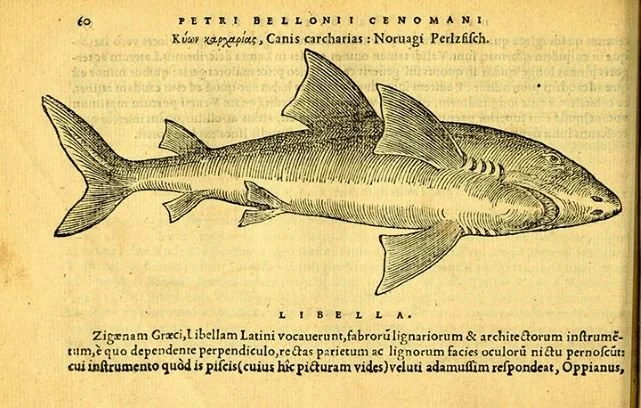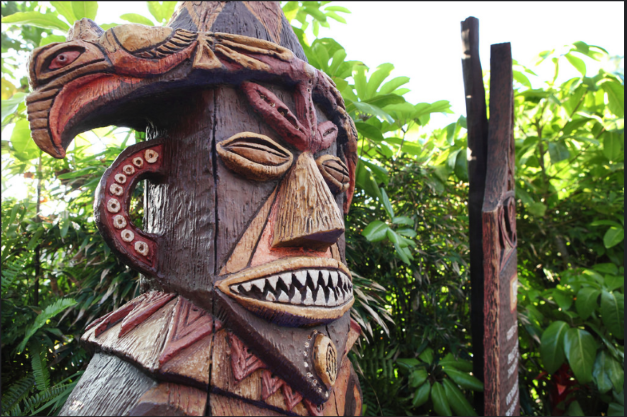What’s in a Word? - ‘Shark’
Records of the use of the word ‘shark’ in English go back to the 15th century, but its exact origin is unclear, with numerous competing theories. Some linguists and historians once contended it comes from the Mayan word for any toothy marine creatures, xoc- pronounced ‘shock’- but the early date of its usage undermines that notion. Others have suggested the Saxon word scearan- 'to cut to pieces', two Dutch words referring to either their perceived character, shurck- 'villain, scoundrel', or the animals’ huge appetites in shrock- ‘glutton’, or even the Greek and scientific name carcharus- meaning 'sharp tooth'. The sentiment of distrust behind the Dutch shurck is evident in the unflattering terms ‘loan shark’, ‘card shark’ and ‘pool shark’ still in use in the present day.
A Mayan shark vessel from Lamanai, Belize. Photo: National Museum of the American Indian, Smithsonian Institution
For earlier English mariners in the Age of Exploration the word tiburón was what they often called the mysterious and frightening animals that followed their ships for any scraps, waste or corpses thrown overboard. Borrowed from Spanish, it echoed the Portuguese, tubarão- which may have in turn been borrowed by travelers from the native South American Tupí word uperú.
Around the world there are many others names for sharks, with their own interesting insights and flavours. Italians call them squalo, but also use pescecane, which translates literally as ‘dog-fish’ or ‘fish-hound’. This canine association rings around the Mediterranean in the Turkish köpek balığı, Croatian morski pas and the Maltese kelb il-baħar, signifying ‘dog-fish’ and ‘sea-dog’, respectively.
An excerpt from a 1553 book on fish by the French naturalist, Pierre Belon, with this shark given the dog-related denomination ‘canis carcharias’; Photo: Biodiversity Heritage Library
The rich naval history of Nordic regions informs the Icelandic word for shark, hákarl; a combination of two words hár- used for various long wooden implements like oar locks, and linked with these strange fish whose oblong shapes resembled those objects- and karl, which means ‘fellow’. The Swedish haj, German, Danish and Norwegian Hai and South African Afrikaans haai may all be abbreviations stemming from this quite practical, descriptive root. In Iran, the Persian word kuseh / کوسه means shark but also, rather obliquely, a beardless person. Further east, there's something cartoonish and amusing about the Vietnamese cá mập = ‘fat fish’. The old Korean word Duruchi / 두루치 is far less light-hearted, combining the symbols for fear - 두루 and fish – 치. Darkest of all however is certainly the French, requin, which relates to the Latin word reqiuem- 'a Mass for the repose of the souls of the dead'. Conversely, the reverence of indigenous Hawaiians for sharks - manō, is seen in phrases like manō hae - fierce or heroic warrior, manō kanaka - a deified person with the spirit of a shark, and in associations like māno wai - meaning the heart and circulatory system, as well as the source of water and life.
An idol of the Hawaiian shark god Kamohoali’i- one of many examples of the indigenous reverence for the animals



